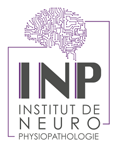Machine learning random forest for predicting oncosomatic variant NGS analysis
Résumé
Since 2017, we have used IonTorrent NGS platform in our hospital to diagnose and treat cancer. Analyzing variants at each run requires considerable time, and we are still struggling with some variants that appear correct on the metrics at first, but are found to be negative upon further investigation. Can any machine learning algorithm (ML) help us classify NGS variants? This has led us to investigate which ML can fit our NGS data and to develop a tool that can be routinely implemented to help biologists. Currently, one of the greatest challenges in medicine is processing a significant quantity of data. This is particularly true in molecular biology with the advantage of next-generation sequencing (NGS) for profiling and identifying molecular tumors and their treatment. In addition to bioinformatics pipelines, artificial intelligence (AI) can be valuable in helping to analyze mutation variants. Generating sequencing data from patient DNA samples has become easy to perform in clinical trials. However, analyzing the massive quantities of genomic or transcriptomic data and extracting the key biomarkers associated with a clinical response to a specific therapy requires a formidable combination of scientific expertise, biomolecular skills and a panel of bioinformatic and biostatistic tools, in which artificial intelligence is now successful in developing future routine diagnostics. However, cancer genome complexity and technical artifacts make identifying real variants challenging. We present a machine learning method for classifying pathogenic single nucleotide variants (SNVs), single nucleotide polymorphisms (SNPs), multiple nucleotide variants (MNVs), insertions, and deletions detected by NGS from different types of tumor specimens, such as: colorectal, melanoma, lung and glioma cancer. We compared our NGS data to different machine learning algorithms using the k-fold cross-validation method and to neural networks (deep learning) to measure the performance of the different ML algorithms and determine which one is a valid model for confirming NGS variant calls in cancer diagnosis. We trained our machine learning with 70% of our data samples, extracted from our local database (our data structure had 7 parameters: chromosome, position, exon, variant allele frequency, minor allele frequency, coverage and protein description) and validated it with the 30% remaining data. The model offering the best accuracy was chosen and implemented in the NGS analysis routine. Artificial intelligence was developed with the R script language version 3.6.0. We trained our model on 70% of 102,011 variants. Our best error rate (0.22%) was found with random forest machine learning (ntree = 500 and mtry = 4), with an AUC of 0.99. Neural networks achieved some good scores. The final trained model with the neural network achieved an accuracy of 98% and an ROC-AUC of 0.99 with validation data. We tested our RF model to interpret more than 2000 variants from our NGS database: 20 variants were misclassified (error rate < 1%). The errors were nomenclature problems and false positives. After adding false positives to our training database and implementing our RF model routinely, our error rate was always < 0.5%. The RF model shows excellent results for oncosomatic NGS interpretation and can easily be implemented in other molecular biology laboratories. AI is becoming increasingly important in molecular biomedical analysis and can be very helpful in processing medical data. Neural networks show a good capacity in variant classification, and in the future, they may be useful in predicting more complex variants.
Mots clés
Bioinformatics
Biological techniques
Biomarkers
Cancer
Cancer genetics
Cancer genomics
Cancer microenvironment
Cancer prevention
Cancer screening
Cancer therapy
CNS cancer
Computational biology and bioinformatics
DNA sequencing
Gastrointestinal cancer
Gene regulation
Genetic markers
Genetic techniques
Genomic analysis
Genotype
Gynaecological cancer
Head and neck cancer
Lung cancer
Machine learning
Metastasis
Molecular biology
Molecular medicine
Mutation
Next-generation sequencing
Oncogenes
Oncology
Oral cancer
Paediatric cancer
Programming language
RNA splicing
Sarcoma
Sequence annotation
Sequencing
Skin cancer
Software
Testicular cancer
Tumour biomarkers
Tumour-suppressor proteins
Urological cancer
Domaines
Cancer| Origine | Fichiers éditeurs autorisés sur une archive ouverte |
|---|


